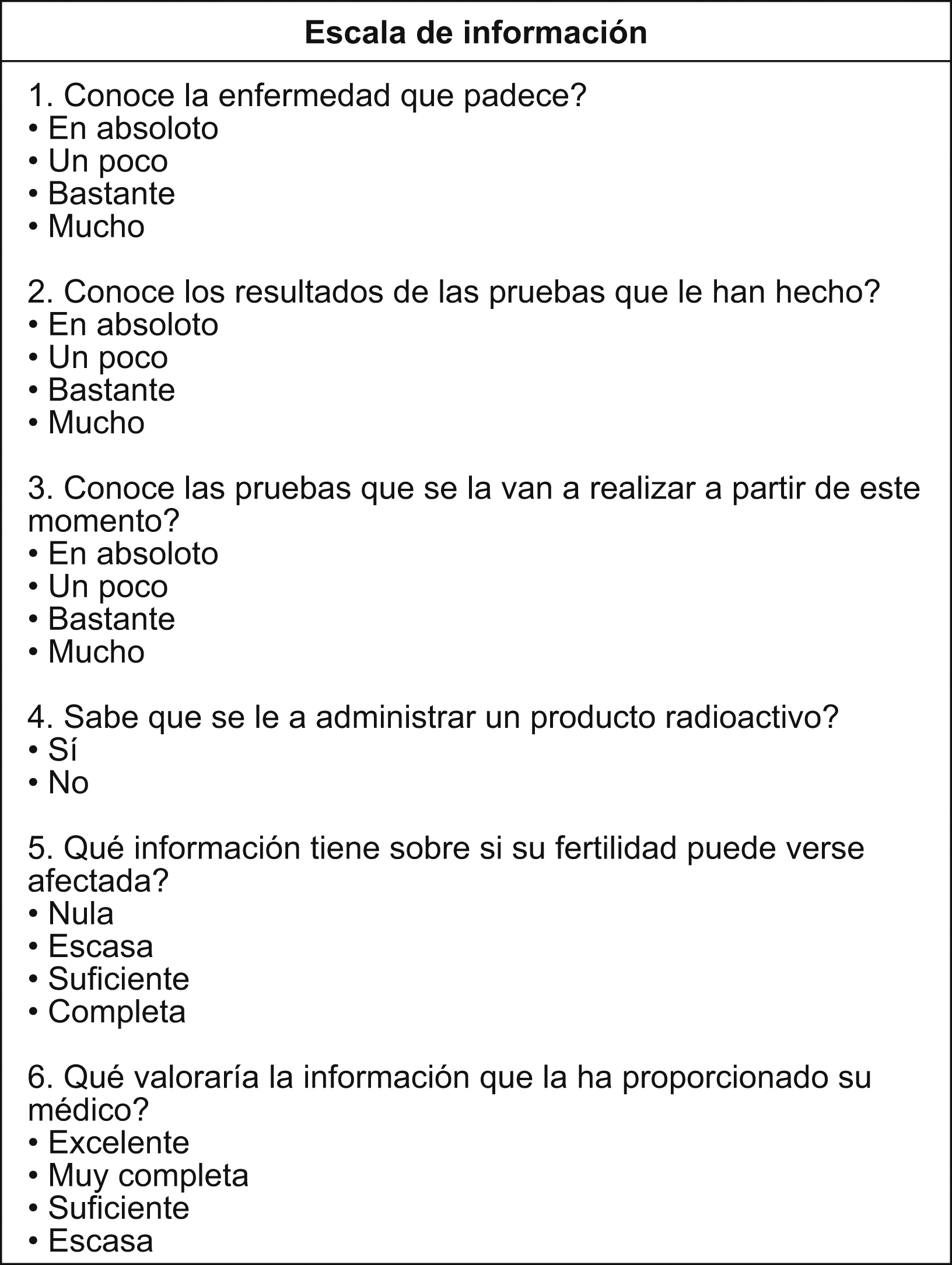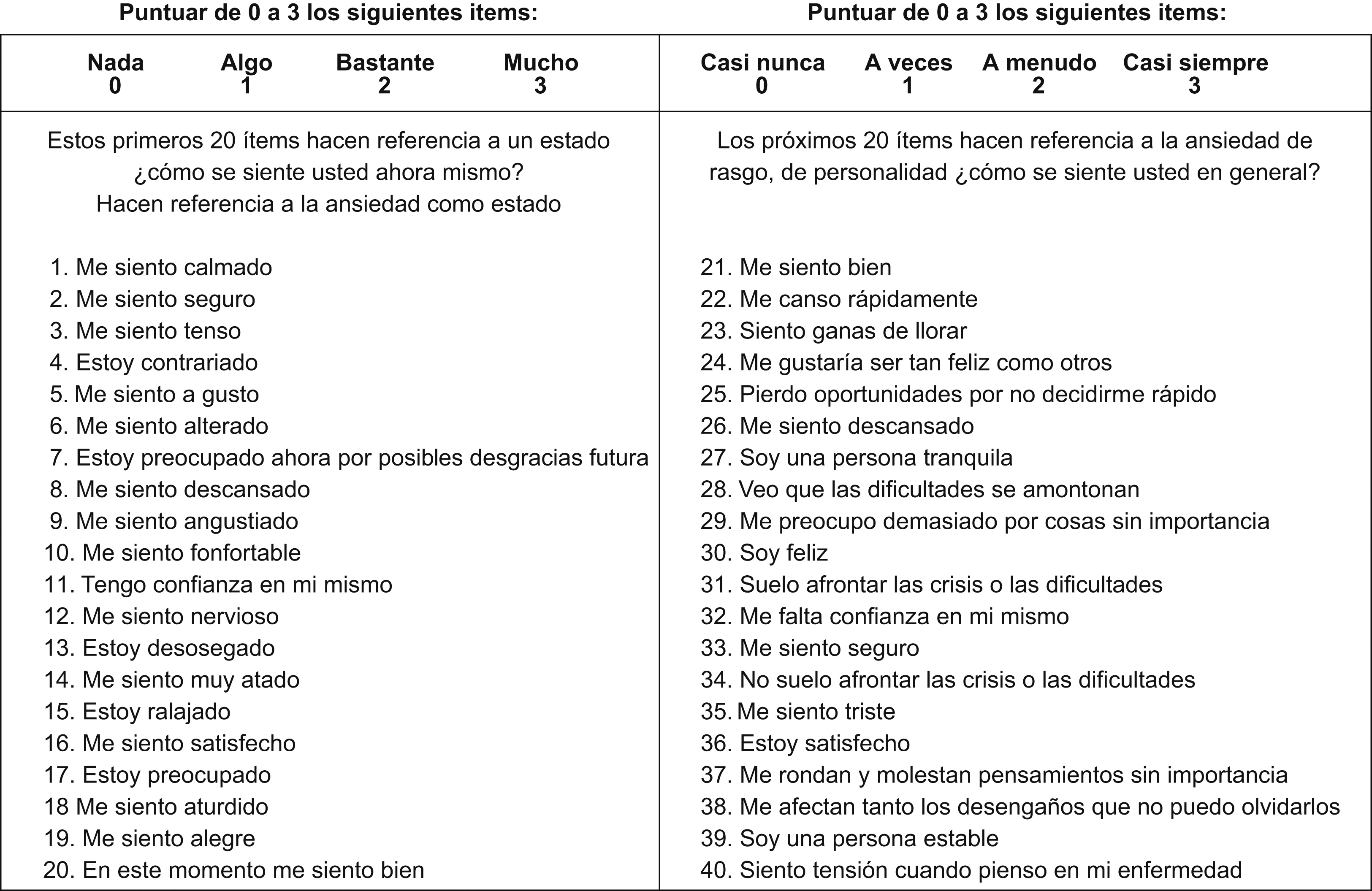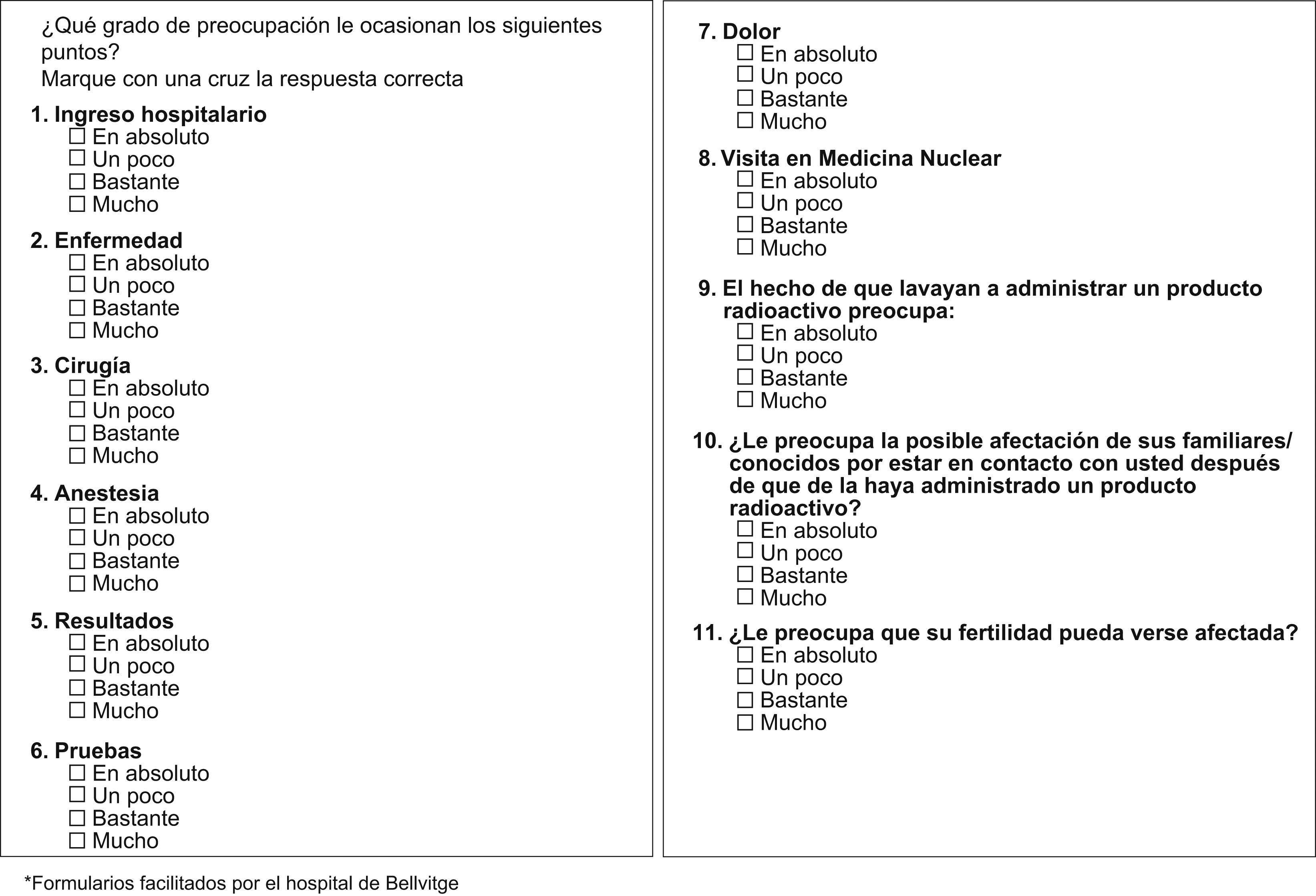Analizar la presencia de ansiedad en pacientes derivados a un servicio de Medicina Nuclear (SMN).
Material y métodoSe incluyeron 148 pacientes; 67 derivados para tratamiento con radioyodo, 48 con hipertiroidismo (HT), 19 con carcinoma diferenciado de tiroides (CDT) y 81 para detección y biopsia del ganglio centinela (GC) en carcinoma de mama (CM).
Se rellenaron los siguientes documentos: datos de filiación, escala de ansiedad estado-rasgo, escala de factores predisponentes ansiógenos y cuestionario de información.
Se estudiaron los factores predisponentes ansiógenos y la influencia de la información en el padecimiento de ansiedad.
ResultadosUn 47% de los pacientes con HT tenían ansiedad en el momento de la visita, que no se relacionó con el nivel de información recibido. El factor que más les preocupaba era la administración de radioyodo. El hecho de ser la primera visita a un SMN se relacionó estadísticamente (p<0,05) con la aparición de ansiedad.
El 42% de los pacientes con CDT tenían ansiedad en el momento de la visita, que no se relacionó con el nivel de información recibido. El factor que más les preocupaba era la propia enfermedad. Ningún factor fue relacionado estadísticamente con la aparición de ansiedad.
El 53% de los pacientes con CM tenían ansiedad en el momento de la visita, que no se relacionó con el nivel de información recibido. El factor que más les preocupaba eran los resultados. El antecedente ansioso-depresivo se relacionó estadísticamente (p<0,05) con la aparición de ansiedad.
ConclusiónLa cantidad de información proporcionada antes de un procedimiento en un SMN no influye en el padecimiento de ansiedad. No obstante, es nuestro deber dar la mejor información posible.
To analyze the presence of anxiety in patients referred to a Nuclear Medicine Department (NMD).
Material and methodsA total of 148 patients were included: 67 were referred for radioiodine therapy, 48 with hyperthyroidism (HT), 19 with differentiated thyroid carcinoma (DTC), and 81 were referred for detection and biopsy of the sentinel node in breast cancer (BC).
The following documents were filled out: personal data, a state-trait anxiety inventory, a scale of pre-disposing factors causing anxiety and an information questionnaire.
Anxiety-predisposing factors and the influence of the information on the presence of anxiety were studied.
ResultsHT patients: 47% had anxiety in the moment of the visit that was not related to the level of information received. The factor that worried them the most was the radioiodine administration. Being the first visit to a NMD significantly influenced (p <0 05 on the presence of anxiety
DTC patients: 42% had anxiety in the moment of the visit not related to the level of information received. The factor that worried them the most was the illness itself. No factor had a significant influence on the presence of anxiety.
BC patients: 53% had anxiety in the moment of the visit that was not related to the level of information received. What worried them the most were the results. Having anxiety and/or depression significantly influenced (p <0 05 the presence of anxiety
ConclusionThe quantity of information given before a procedure in a NMD does not influence on the presence of anxiety. Nevertheless, it is our duty to give the best possible information.
Artículo
Comprando el artículo el PDF del mismo podrá ser descargado
Precio 19,34 €
Comprar ahora









